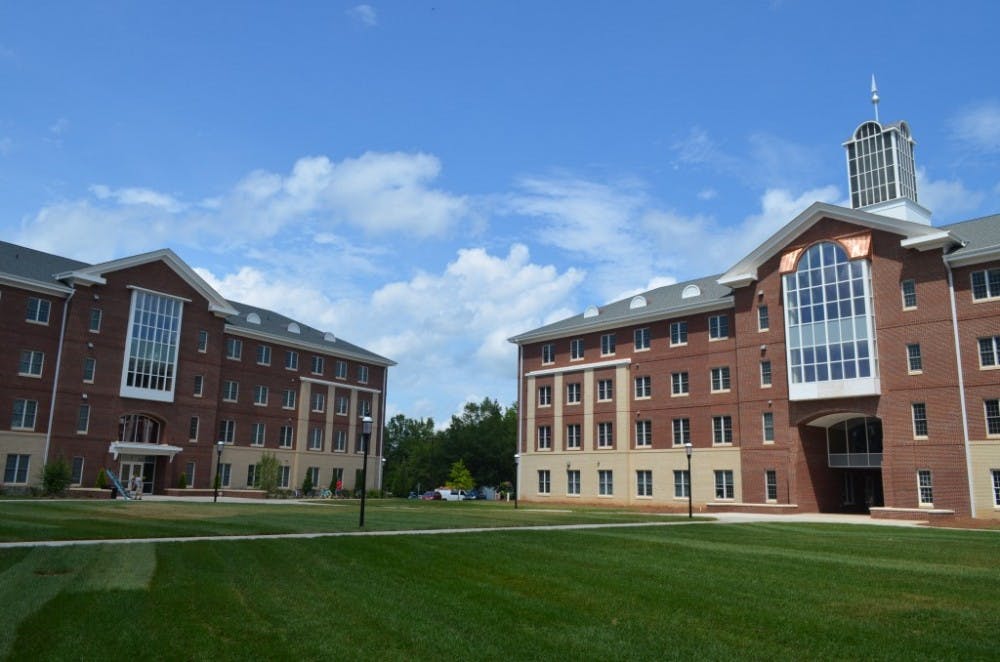A movement to advance the intellectual climate is reflected in Elon University’s latest construction projects.
The Global Village was born out of the Residential Campus Initiative, a plan to integrate the academic and residential experience at Elon, and is ready to house students and faculty.
In Fall 2013, two of the residence halls in The Global Village were complete. This year, all three are ready to go. The completed area can house up to 595 people and is prepared to take on several live-in faculty members.
Within the Global Village, all students will have access to the Great Hall, a communal space equipped with meeting rooms and study areas, as well as a dining facility called Argo Tea.
“We created student hang-out space for collaborations so students can run into each other and can continue conversations they started in the classroom,” said Brad Moore, university architect and director of planning, design and construction management.
Changes made to Belk Library create a more welcoming, group work-friendly area, Moore said.
“The library, we’re just trying to open that space up to encourage people to use it whether it’s individually or in a group,” Moore said.
By moving the information desk away from the center of the first floor, students will be invited to move farther inside the library, he said. He also noted that the computers are clustered together in pods to facilitate collaboration and discussion.
Elsewhere on campus, Moseley’s second floor was reformatted to reflect a more inclusive campus with a brand-new Multicultural Center.
In addition to the communal space, the floor now also houses Asian, African-American and Hispanic and Latino resource rooms, along with a Gender and LGBTQIA Center. The second-floor Student Government Association received a reboot as well.
“We want this to be a welcoming space,” said Randy Williams, special assistant to president and dean of multicultural affairs.
Williams said he plans to reach out to other organizations on campus and invite them to hold events in the Multicultural Center. The resource rooms present an opportunity for people of different ethnicities and backgrounds to come together and learn about other identities, he said.
“When I look now and see the changes that have occurred, I think it will facilitate a setting that allows for great programs,” Williams said. “I’d love to see us have the spaces and programs and personnel where students can flourish. This space will facilitate that.”
Also new to Elon is Scott Studio, a performing arts facility on West Haggard Avenue, next to Arts West. The white stucco building contains a black box theater and six performance practice rooms. The studio also has a rehearsal space designed to match the dimensions of McCrary Theatre, where performances are generally held at Elon.
Fred Rubeck, the performing arts department chair, said the additional space is much needed.
“It will help us more accurately prepare all of the productions that move into McCrary for performance,” Rubeck said. “This new building will really be a game-changer for us.”


